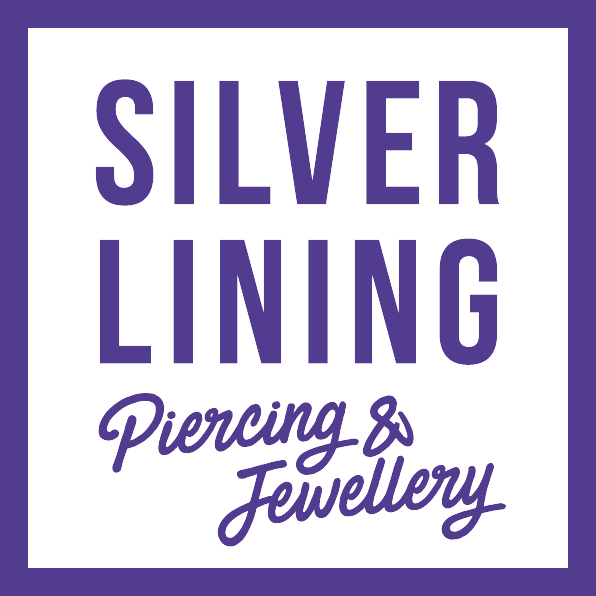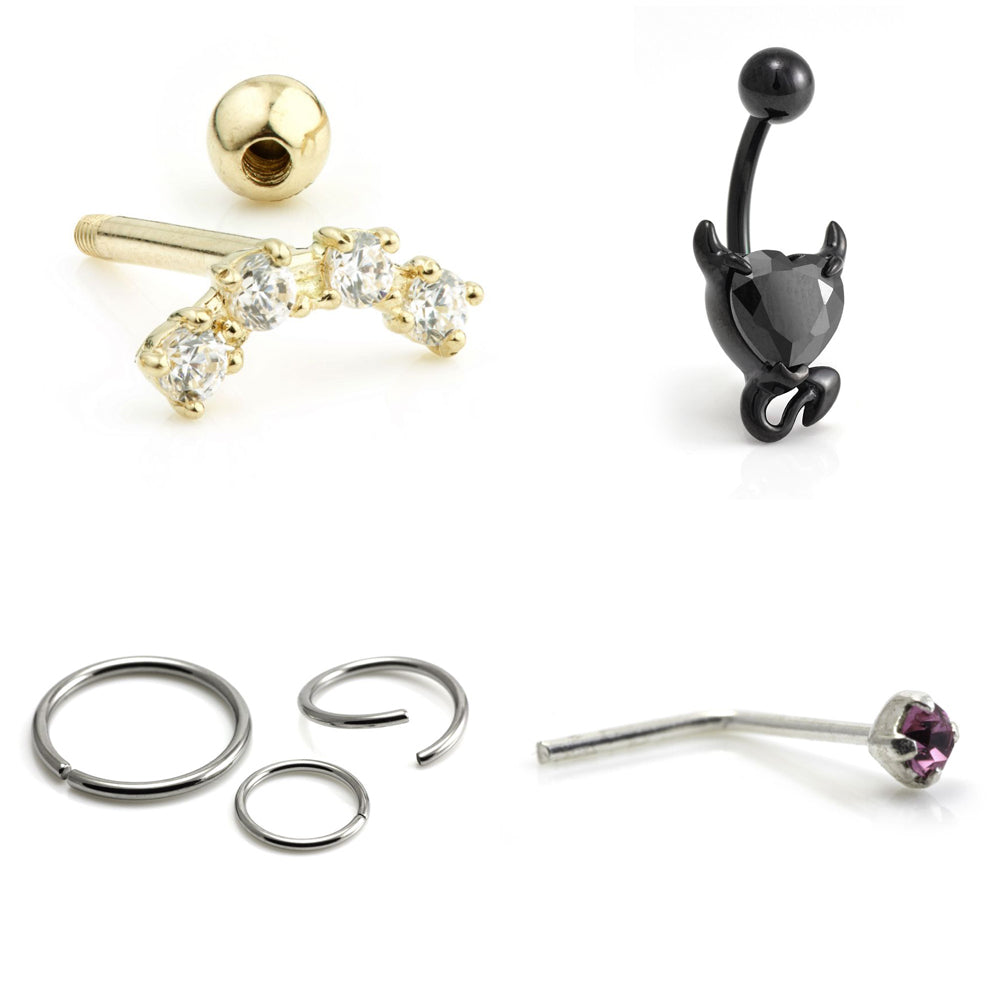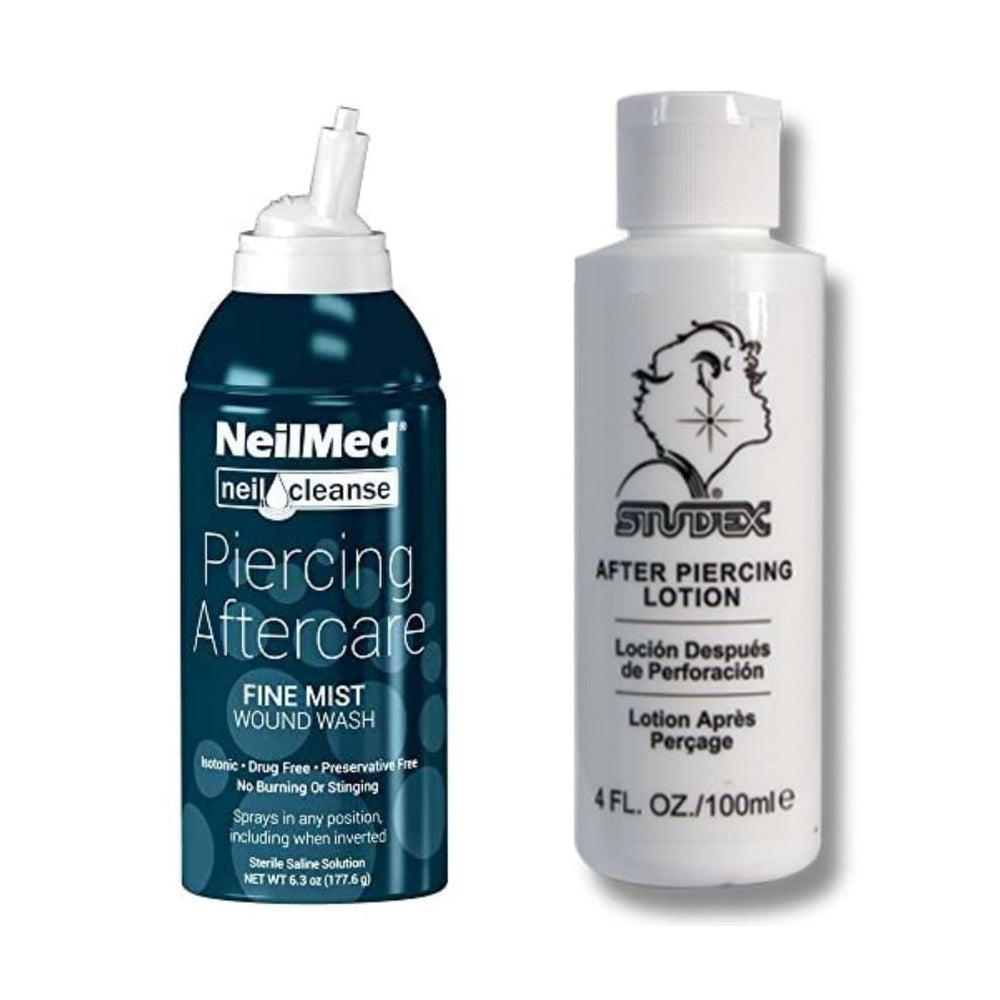What is titanium, and why is it the best material for a fresh piercing?
Introduced into surgeries in the 1950s, titanium is the metal of choice for countless medical applications, including neurosurgery, prosthetics, and biomedical implants, due to its outstanding biocompatibility. This also includes - you guessed it - piercing jewellery! But what does biocompatibility mean? It means that titanium is fully resistant to corrosion caused by bodily fluids or other sources of moisture (i.e. showers), which prevents reactions between the metal and the surrounding tissue. It also has a very smooth surface texture, which in combination with its high durability means it is very unlikely that it will get nicks or scratches on the metal that could trap germs and bacteria.

The other important thing that makes titanium unique is that it is entirely nickel-free. Have you ever gotten itchy and sore skin from wearing cheap fashion jewellery? Then you most likely have a nickel allergy. And you're not alone! The current estimate is that between 10 and 20% of the entire population are allergic to nickel. And as you can imagine, having jewellery that can severely irritate your skin used on a fresh piercing is number one thing that will keep your piercing from healing. That is why at Silver Lining, we only pierce with implant grade titanium from trusted sources allowing us to access mill certificates that certify compliance with international purity standards. In short - we only want the best of the best for you!
One other fun fact about titanium is that it can be anodized to different colours. So, your fresh piercing doesn't always have to be the plain ol' dark silver colour, it can be anything from gold to pink, blue or green, or even rainbow colours! Feel free to ask the piercers in any of our shops for the coloured options, if you want to mix up your look a bit!

Is titanium really the only metal you can be pierced with?
While it is the industry standard and one of the best choices for a fresh piercing, it is not the only metal suitable! So, what else could be used?
Niobium
This is on a molecular level very similar to titanium, the key difference being that it is slightly less corrosion resistant. It is cheaper than titanium, and in some regions the most common material used for piercings (i.e. in Brazil, 85% of the metal used for piercings or implants is niobium). At Silver Lining, we have decided not to use niobium for our piercings. While it is a biocompatible metal, it is not quite as long lasting as titanium, and that is really the only reason we need not to use it. As we said above, we only want the best for our customers!
14K-18K Solid Gold
Gold jewellery has always been popular, and has been around since 4000 BCE. However, not all gold jewellery is suitable for piercings! One very important thing is that it is solid gold, and not gold plated jewellery. While a high karat plating sounds expensive and attractive, the plating can wear off over time, especially if you wear the jewellery 24/7, and expose the underlying metal. This can cause severe irritation, or in the worst case, infection. If you want to opt for a gold post for your fresh piercing, it needs to be either 14K or 18K solid gold, as this won't degrade or corrode over time, and the material is durable enough to keep its shape and surface texture. 24K gold, for example, is too soft, and can easily bend out of shape or collect scratches on its surface, which can harbor bacteria. While we mostly pierce with titanium, we do have the option available to pierce with 14K high quality solid gold. The charges for this are obviously a bit higher than the standard titanium options, but if you have always dreamed of a nice gold piece, we will do our best to make that happen!










